Filter by
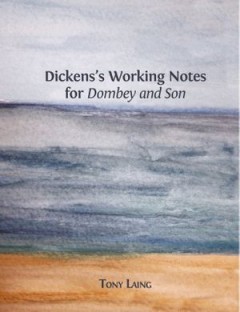
Dickens's Working Notes for 'Dombey and Son'
"This critical edition of the working notes for Dombey and Son (1848) is ideal for readers who wish to know more about Dickensâs craft and creativity. Drawing on the authorâs manuscript in the Victoria and Albert Museum, Londonâand containing hyperlinked facsimilesâDickensâs Working Notes for Dombey and Son offers a new digital transcription with a fresh commentary by T…
- Edition
- -
- ISBN/ISSN
- 9781783742257
- Collation
- 224 halaman
- Series Title
- -
- Call Number
- 800 LAI d
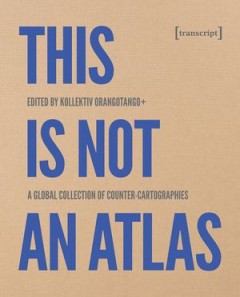
This is Not an Atlas: A Global Collection of Counter-Cartographies
This Is Not an Atlas gathers more than 40 counter-cartographies from all over the world. This collection shows how maps are created and transformed as a part of political struggle, for critical research or in art and education: from indigenous territories in the Amazon to the anti-eviction movement in San Francisco; from defending commons in Mexico to mapping refugee camps with balloons in Leba…
- Edition
- 2
- ISBN/ISSN
- 9783839445198
- Collation
- -
- Series Title
- -
- Call Number
- 912 ATL a
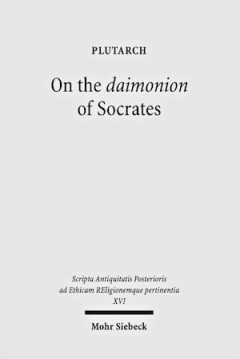
On the daimonion of Socrates : Plutarch
Plutarch's dialogue On the daimonion of Socrates is a unique combination of exciting historical romance and serious philosophical and religious discussion. The volume offers a range of essays on themes providing further insights into this masterly literary piece: on the historical, religious and philosophical background and on thematic connections with other works by Plutarch
- Edition
- -
- ISBN/ISSN
- 9783161501388
- Collation
- -
- Series Title
- SAPERE
- Call Number
- 900 DAI

Manifesto for a Post-Critical Pedagogy
The belief in the transformative potential of education has long underpinned critical educational theory. But its concerns have also been largely political and economic, using education as the means to achieve a better – or ideal – future state: of equality and social justice. Our concern is not whether such a state can be realized. Rather, the belief in the transformative potential of educ…
- Edition
- -
- ISBN/ISSN
- 9781947447387
- Collation
- 110 halaman
- Series Title
- -
- Call Number
- 370 HOD m

Heritage, Pilgrimage and the Camino to Finisterre Walking to the End of the …
This book presents research concerning the effects of the Camino to Finisterre on the daily lives of the populations who live along the route, and the heritagization processes that exploitation of the Camino for tourism purposes involves. Rather than focusing on the route to Santiago de Compostela and the pilgrimage itself, it instead examines a peculiar part of the route, the Camino to Finiste…
- Edition
- 1
- ISBN/ISSN
- 978-3-319-20211-2
- Collation
- XVI, 211
- Series Title
- GeoJournal Library
- Call Number
- 910 HER

Heidegger and Development in the Global South
Taking the Heideggerian critical ontology of technology as its base, this volume looks at postcolonial modernization and development in the global south as the worldwide expansion of the western metaphysical understanding of reality. We live today in an increasingly globalizing technological society that Martin Heidegger described in the middle of the last century as ‘the planetary imperialis…
- Edition
- -
- ISBN/ISSN
- 978-81-322-2303-0
- Collation
- XIX, 309
- Series Title
- -
- Call Number
- 300 GEO h

A Handbook of Phonetics Including a Popular Exposition of the Principles of …
As a phonetician and comparative philologist, Henry Sweet (1845–1912) produced work that was regarded as seminal, particularly in Germany, where he received greater academic recognition than in England. His textbooks on Old English have long been considered standard works. As well as theoretical and historical studies, he also became involved in more practical aspects of linguistics, devising…
- Edition
- -
- ISBN/ISSN
- 9781139854665
- Collation
- -
- Series Title
- Cambridge Library Collection - Linguistics
- Call Number
- -

Conceptual change in biology : scientific and philosophical perspectives on e…
This volume explores questions about conceptual change from both scientific and philosophical viewpoints by analyzing the recent history of evolutionary developmental biology. It features revised papers that originated from the workshop "Conceptual Change in Biological Science: Evolutionary Developmental Biology, 1981-2011" held at the Max Planck Institute for the History of Science in Berlin i…
- Edition
- -
- ISBN/ISSN
- 9789401794121
- Collation
- xvii, 490 pages
- Series Title
- -
- Call Number
- 155.7
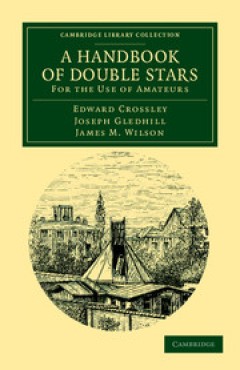
A Handbook of Double Stars For the Use of Amateurs
Used to describe both binary systems and optical doubles, the term 'double star' has been familiar to astronomers since the seventeenth century. This book, first published in 1879, outlines the history of their study, and describes the methods and equipment needed in order to observe the fascinating phenomenon. Written for non-specialists by Fellows of the Royal Society Edward Crossley (1841–…
- Edition
- -
- ISBN/ISSN
- 9781139108980
- Collation
- -
- Series Title
- Cambridge Library Collection - Astronomy
- Call Number
- -
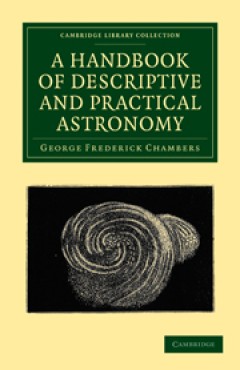
A Handbook of Descriptive and Practical Astronomy
This handbook by George Frederick Chambers (1841–1915), a young and enthusiastic amateur astronomer, became a best-seller soon after its publication in 1861 and made Chambers' reputation as a popular astronomy writer. The work is divided into ten parts covering the following topics: the planets of our solar system; eclipses; gravity and tides; phenomena including aberration and refraction; co…
- Edition
- -
- ISBN/ISSN
- 9780511709937
- Collation
- -
- Series Title
- Cambridge Library Collection - Astronomy
- Call Number
- -
 Computer Science, Information & General Works
Computer Science, Information & General Works  Philosophy & Psychology
Philosophy & Psychology  Religion
Religion  Social Sciences
Social Sciences  Language
Language  Pure Science
Pure Science  Applied Sciences
Applied Sciences  Art & Recreation
Art & Recreation  Literature
Literature  History & Geography
History & Geography